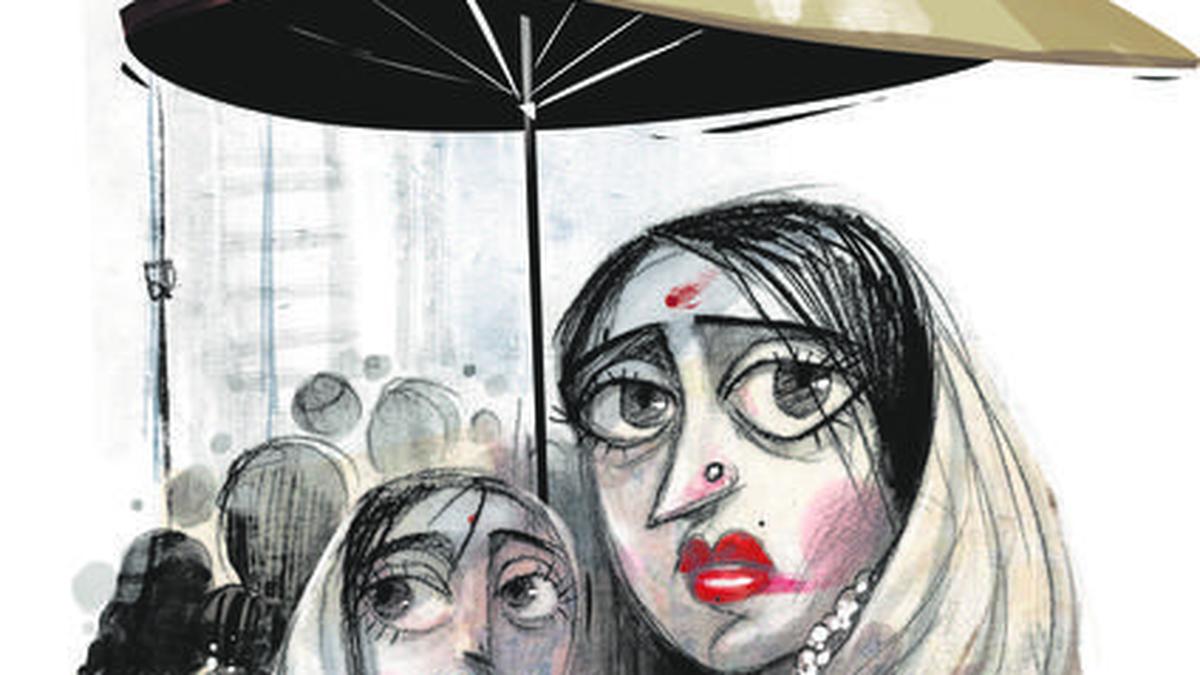In the summer of 1990, a special police team of the Tamil Nadu Crime Branch-CID (CB-CID) stormed brothels in Bombay (now Mumbai), and with the help of the local police, rescued hundreds of women forced into prostitution. The number of victims was so large that the Indian Railways was persuaded to run a special train to bring them home. This remains the largest such rescue operation by the State CB-CID police outside of Tamil Nadu.
It all started in 1989 with a representation by ‘Savdhan’, a Maharashtra-based non-governmental organisation (NGO) with its branch in Chennai, to the Tamil Nadu Police that many women from different parts of the State had been trafficked to Maharashtra and held captive in the brothels there. The then Chief Minister M. Karunanidhi directed the CB-CID to verify the veracity of the complaint and act swiftly if found true.
On October 24, 1989, the CB-CID deputed a team led by Mir Shoukath Ali, one of its best inspectors, to visit the suspected locations in Bombay to discreetly investigate the allegation. To its utter shock, the team found more than 600 Tamil women engaged in prostitution in the localities of Sonapur, Naya Sonapur, and Kamatipura, says a CB-CID report published in a police journal. Some transpersons had converted a few streets into red light areas with the trafficked women confined to rows of houses.
Inquiries with the local people revealed that the women were forced into prostitution, and those who attempted to escape were thrashed and tortured by the brothel keepers.
Assistance of Bombay Police
On his return, Mr. Shoukath Ali submitted his report on the plight of the Tamil Nadu women and how they were being exploited in Bombay. He informed his superiors that he met some senior police officers who assured him of all assistance from the Bombay Police in rescuing the victims.
The State government took a decision to raid the brothels, rescue the victims, and bring them home. A strategy was chalked out and explained to a special team on the operating procedures in another State. The stage was set to launch a massive anti-prostitution operation in Bombay.
On May 24, 1990, a total of 67 police personnel, including 22 women, led by A. Appusamy, Assistant Commissioner of Police, boarded the Dadar Express to Bombay.
A couple of days later, the team raided the brothels with the assistance of the local police. In all, 983 women, including children, were rescued from the dirty dens, where they lived in appalling conditions. Among those rescued were 749 women and 68 children who were natives of Tamil Nadu. A majority of others belonged to Karnataka and Puducherry.
The police found that the women, many of whom were lured by promises of attractive jobs by agents, had been forced into the flesh trade and held captive for several months. With not much of communication facilities then, they could not reach out to family or friends back home. “A gang of transpersons exercised absolute control on their lives, abused them for prostitution, and ruthlessly suppressed any escape bid. If any woman dared to go against their wishes, she would be severely punished. The surroundings in which these victims were forced to live were filthy. Some of the victims were rescued from cave-like hideouts. About 200 transpersons, who had kept these girls in different houses under duress, were arrested,” the report said.
‘Mukthi’ Express
The victims were initially shifted to a safe home. The jurisdictional Judicial Magistrate, who visited them, was convinced with the facts presented by the Tamil Nadu Police and allowed them to take custody of the women and children.
When the discussion on how the victims could be transported to Tamil Nadu came up, some police officers suggested that the only safe option was to move them in a special train. The matter was taken to the notice of the authorities in the Indian Railways, who agreed to run a special train, which was named ‘Mukthi’ (liberation) Express. This train left Bombay on May 29, 1990, with the police escorting 824 women and children. Some of the victims preferred to stay back in Bombay.
On their arrival in Madras (now Chennai) a couple of days later, the victims were given a warm welcome. The then State Minister for Social Welfare Subbulakshmi Jagadeesan was present at the station to receive them. The police worked with the Social Welfare Department to reunite victims with their family members. Those who feared ostracism or refused to rejoin their families were sent to government homes for women in Chennai, Vellore, Tiruchi, Salem, and Coimbatore.
Karunanidhi sanctioned ₹7.18 lakh for the rehabilitation of the victims. The police continued the operation by going after the pimps who made false promises of lucrative jobs in Bombay and forced the innocent women into the flesh trade.
Published – December 20, 2024 08:03 am IST






